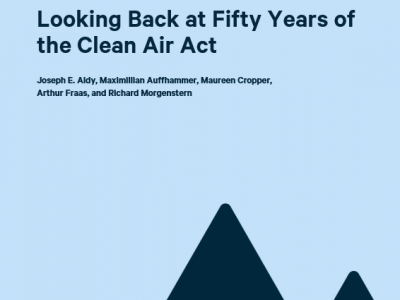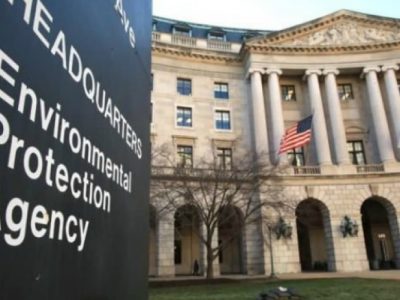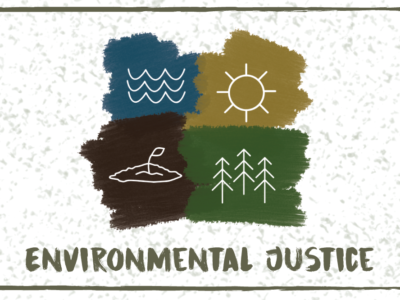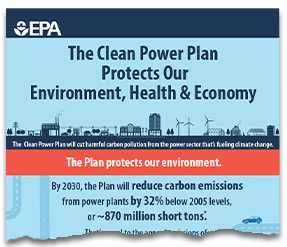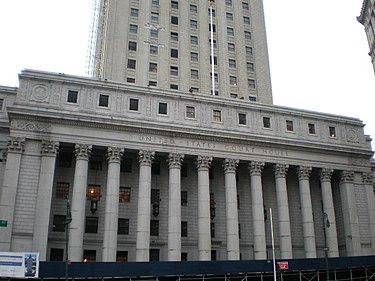Clean Air Act
Taking A Data-Driven Tour of Air Pollution Law
After Half a Century, What Do We Really Know about the Impacts of the Clean Air Act?
Earlier this year, a team of economists published a retrospective paper on the Clean Air Act. It surveys the economic literature to find out what the data tells us about emission trading systems, the effects of pollutants, and effects of imposing tougher regulatory requirements in areas that failed to meet national air quality standards. Some …
Continue reading “Taking A Data-Driven Tour of Air Pollution Law”
CONTINUE READINGWest Virginia v. EPA: A Quick Explainer
This video lays out the issues, what the Court did, and where EPA can go from here.
CONTINUE READINGRegan Hits His Stride
Under Administrator Michael Regan, the Biden EPA is beginning to churn out important new regulatory proposals.
The Trump Administration left a trail of regulatory destruction behind it. Cleaning up the mess and issuing new regulations is Priority #1 for the Biden Administration. Under EPA head Michael Regan, the effort is beginning to pick up steam. EPA has begun the year with several major new regulatory efforts. No one of them is …
Continue reading “Regan Hits His Stride”
CONTINUE READINGEnvironmental Justice, Truck Pollution, and the Biden EPA
How will EPA integrate EJ into its rule making? The answer remains murky.
EPA recently released a notice of proposed rulemaking for pollution from new heavy-duty vehicles. I was interested to see how environmental justice figured into the analysis, looking for clues about how the Biden Administration plans to make EJ part of decision making. What I found wasn’t very enlightening. Perhaps they’re still trying to come up …
Continue reading “Environmental Justice, Truck Pollution, and the Biden EPA”
CONTINUE READINGAir Quality as Environmental Justice
National air quality standards may be among the most powerful levers for environmental justice.
The environmental justice movement began with a focus on neighborhood struggles against toxic waste facilities and other local pollution sources. The EJ focus now includes other measures to ensure that vulnerable communities get the benefit of climate regulations. The most powerful tool for assisting those communities, however, may be the National Ambient Air Quality Standards …
Continue reading “Air Quality as Environmental Justice”
CONTINUE READINGDefending EPA’s Authority to Fight Climate Change – at the Supreme Court
Sean Hecht and Ted Lamm co-author amicus brief on behalf of Clean Air Act expert Tom Jorling
This week, Sean Hecht and I filed an amicus brief at the Supreme Court in West Virginia v. EPA in defense of EPA’s authority to effectively regulate greenhouse gas emissions under the Clean Air Act. Our client is Tom Jorling, a former Senate staffer and EPA official who was directly involved in drafting the Act …
Continue reading “Defending EPA’s Authority to Fight Climate Change – at the Supreme Court”
CONTINUE READINGToday’s Vaccine Cases: Implications for Climate Change Regulation
Today’s ruling are (somewhat) good news in terms of West Virginia v. EPA?
Today, the Court’s conservative Justices split the difference in two cases involving vaccine mandates, striking down OSHA’s mandate but upholding a more limited mandate for healthcare workers. The cases also split the conservative Justices themselves, with three hardliners (Thomas, Alito, and Gorsuch) seeking a more activist ruling in the OSHA case and dissenting in the …
Continue reading “Today’s Vaccine Cases: Implications for Climate Change Regulation”
CONTINUE READINGIt’s Time to Repeal the Clean Power Plan
The CPP no longer serves any useful purpose, and keeping it on the books invites mischief by the Supreme Court.
The Clean Power Plan (CPP) was the Obama Administration’s signature climate effort. This 2015 regulation aimed to move state power grids away from coal and toward renewable energy. It immediately became ensnared in litigation and never went into effect. It’s now considered irrelevant for all practical purposes. Yet the Supreme Court is now set to …
Continue reading “It’s Time to Repeal the Clean Power Plan”
CONTINUE READINGCost-Benefit Analysis and the Biden EPA
The recent rescission of a Trump rule hints at how the Biden Administration views the role of cost-benefit analysis.
In its closing days, the Trump Administration issued a rule designed to tilt EPA’s cost-benefit analysis of air pollution regulations in favor of industry. Last week, EPA rescinded the rule. The rescission was no surprise, given that the criticisms of the Trump rule by economists as well as environmentalists. EPA’s explanation for the rescission was …
Continue reading “Cost-Benefit Analysis and the Biden EPA”
CONTINUE READINGAppeals Court Nixes NYC Climate Lawsuit
With a clever if contrived argument, the Second Circuit tries to eliminate climate change litigation.
On Friday, the Second Circuit issued an important decision in a lawsuit against the oil industry. New York City had sued the oil companies for harms relating to climate change. The appeals court ordered the case dismissed, on the ground that any harm relating to fossil fuel is exclusively regulated by the Clean Air Act. …
Continue reading “Appeals Court Nixes NYC Climate Lawsuit”
CONTINUE READING



